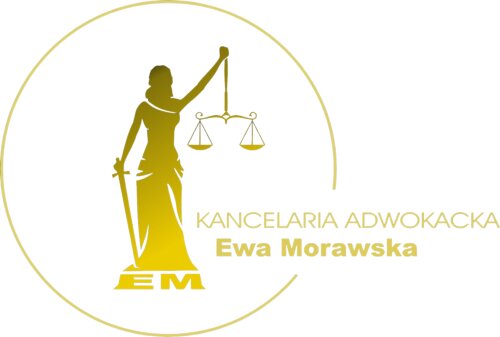
Best Child Support Lawyers in Poland
Share your needs with us, get contacted by law firms.
Free. Takes 2 min.
Free Guide to Hiring a Family Lawyer
Or refine your search by selecting a city:
List of the best lawyers in Poland

About Child Support Law in Poland
Child support in Poland is governed by the Family and Guardianship Code, which outlines the responsibilities of parents to financially support their children. It mandates that both parents are obligated to contribute to the needs of their child, irrespective of whether they are married, living together, or separated. The law ensures that a child receives adequate resources for their upbringing, including education, healthcare, and daily needs.
Why You May Need a Lawyer
There are several situations in which individuals may find it beneficial to seek legal advice regarding child support. These include:
- Establishing Child Support: Navigating the process of determining the appropriate amount of support can be complex, particularly if it involves court proceedings.
- Enforcement of Child Support: When a non-custodial parent fails to meet their child support obligations, legal intervention may be necessary to enforce payment.
- Modifying Support Orders: Changes in circumstances, such as income or the needs of the child, may require a modification of existing support arrangements.
- Disputes Between Parents: Conflicts can arise regarding the calculation or use of child support funds, requiring legal mediation or resolution.
Local Laws Overview
In Poland, the amount of child support is determined based on the child's needs and the financial capacity of the parents. Key aspects of local child support laws include:
- The court considers the child’s age, health, and educational requirements when determining support.
- Both parents must provide documentation to prove their earnings and financial status.
- Child support obligations generally continue until the child reaches 18 or completes their education.
- Court decisions on child support can be appealed if there is a significant change in circumstances.
Frequently Asked Questions
What is the legal definition of child support in Poland?
Child support in Poland refers to the financial contributions made by a parent to ensure their child's well-being, encompassing day-to-day living expenses, education, and healthcare.
How is the amount of child support determined?
The court assesses the child's needs and the parents' income and living standards to determine the appropriate level of child support.
Can child support be changed?
Yes, either parent can request a change in child support if they can demonstrate a significant change in their financial situation or the child's needs.
What happens if someone fails to pay child support?
Failure to pay can lead to legal consequences, including wage garnishment, property liens, and even criminal charges.
Is it possible to negotiate child support outside of court?
Yes, parents can come to a mutual agreement regarding child support, but it is advisable to have the agreement approved by a court to ensure enforceability.
How long does it take to resolve child support issues in court?
It varies based on the complexity of the case and the court's schedule, but typically, it can take several months to reach a resolution.
Can foreign residents apply for child support in Poland?
Yes, as long as the child resides in Poland, the custodial parents, regardless of nationality, can apply for child support.
Does child support cover a child's extracurricular activities?
Generally, child support covers basic needs, but additional support may be required for extracurricular or extraordinary expenses.
What is the role of the Polish court in child support cases?
The court oversees the determination, enforcement, and modification of child support, ensuring that the amount is fair and sufficient for the child's needs.
Can child support be directly paid to the child?
Generally, child support is paid to the custodial parent, but in specific situations, the court might allow payment directly to an older child.
Additional Resources
For those seeking further information or assistance with child support matters in Poland, the following resources can be helpful:
- Court of Family and Minors: Handles issues related to family law, including child support.
- Local Legal Aid Centers: Provide free or low-cost legal assistance to individuals who qualify.
- Ministry of Justice: Offers general information and legislative details on child support.
- Child Support Enforcement Agency: Helps enforce child support orders across Poland.
Next Steps
If you need legal assistance with child support matters in Poland, here are some steps you can take:
- Consult a Lawyer: Seek a family law attorney who specializes in child support. They can provide personalized guidance based on your circumstances.
- Prepare Documentation: Gather necessary documents, including proof of income, expenses, and any previous court orders.
- File a Case: If necessary, your lawyer can help you file a case in your local family court to address support issues.
- Mediation: Consider mediation as a less adversarial process to come to an agreement with the other parent.
- Use Community Resources: Reach out to local organizations or legal aid services for additional support and guidance.
Lawzana helps you find the best lawyers and law firms in Poland through a curated and pre-screened list of qualified legal professionals. Our platform offers rankings and detailed profiles of attorneys and law firms, allowing you to compare based on practice areas, including Child Support, experience, and client feedback.
Each profile includes a description of the firm's areas of practice, client reviews, team members and partners, year of establishment, spoken languages, office locations, contact information, social media presence, and any published articles or resources. Most firms on our platform speak English and are experienced in both local and international legal matters.
Get a quote from top-rated law firms in Poland — quickly, securely, and without unnecessary hassle.
Disclaimer:
The information provided on this page is for general informational purposes only and does not constitute legal advice. While we strive to ensure the accuracy and relevance of the content, legal information may change over time, and interpretations of the law can vary. You should always consult with a qualified legal professional for advice specific to your situation.
We disclaim all liability for actions taken or not taken based on the content of this page. If you believe any information is incorrect or outdated, please contact us, and we will review and update it where appropriate.
Browse child support law firms by city in Poland
Refine your search by selecting a city.













